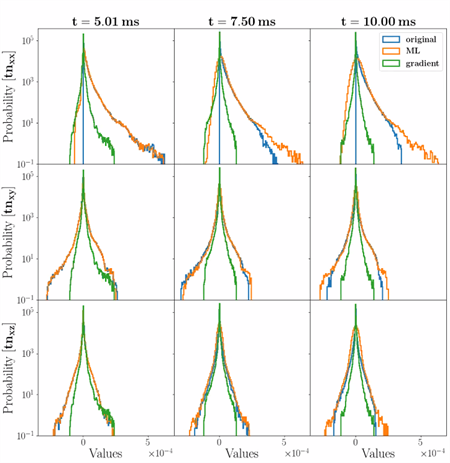
April 2, 2021
3 min read
Provectus Brings Machine Learning to Numerical Astrophysics, Helping Simulate Turbulence in Supernovae Models
Author:
Provectus, AI-first consultancy and solutions provider.
PALO ALTO – March 9, 2021 — Provectus, a Silicon Valley artificial intelligence (AI) consultancy, has announced today that its ongoing collaboration with Platon Karpov, a fellow at Los Alamos National Laboratory (LANL) and a Ph.D candidate in Astronomy and Astrophysics Department at UC Santa Cruz, has resulted in the development and implementation of new machine learning-based pipelines for simulating supernovae turbulence in numerical astrophysics.
Supernovae are powerful luminous stellar explosions that occur during the last evolutionary stages of a massive star. Under normal conditions, the outward pressure on the star is compensated by its inward force of gravity. But once the star runs out of fusion elements to provide sufficient outward pressure, it collapses inward, bounces off the core, ideally leading for the pressure wave to explode outwards.
Karpov has been investigating the effects of turbulence on re-energizing the stalled shockwave after its bounce off the proto-neutron star. A variety of factors appear to influence the process; the problem is, thus, highly asymmetric and requires accounting for physics in 3D — simulations that can cost hundreds of millions of CPU-hours. Karpov concluded that developing a turbulence subgrid machine learning model for core-collapse supernovae was the best method for researching supernovae turbulence accurately and cost-efficiently.
Theoretical astrophysics has been slow to adopt AI and machine learning, and Karpov could not easily find a platform on which to build. To move the project from theory and papers to application for the physics-informed ML templates, he joined forces with Provectus for help in designing and building a robust ML pipeline.
As a result of their close collaboration, Provectus and Karpov developed Sapsan — a flexible, highly customizable pipeline for researching supernova turbulence through conventional and physics-based machine learning. As intended by Karpov, users can utilize Sapsan to implement machine learning in a variety of scientific projects by running various frameworks (e.g. physics-informed frameworks, kernel ridge regression, three-dimensional convolutional neural networks), or creating their own frameworks. Sapsan takes out all the hard work from data preparation and analysis in turbulence and astrophysical applications, enabling users to focus on ML model design, layer by layer.
The first results of Sapsan’s ability to simulate turbulence in supernovae models were revealed at the 2021 SIAM Conference on Computational Science and Engineering.

The input was a three-dimensional magnetohydrodynamic dataset, which contained data for the first 10 ms after a shockwave’s bounce with several different possible resolutions ranging from 50 to 500 meters. The result was a closure model that attempts to recover the small-scale turbulent structure in low-fidelity simulations. Sapsan produced an accurate distribution prediction of the stress tensor for the timespan between 5 and 10 ms, which made up half of the total simulation time. In his presentation, Karpov noted that Sapsan’s flexibility and reproducibility make it possible to apply machine learning in a variety of astrophysical settings.
Karpov plans to continue collaborating with Provectus to extend the list of physics-informed turbulence subgrid models, as well as the analytical tools available in Sapsan.
A demo of Sapsan is available at sapsan.app; GitHub wiki can be found here.
About Los Alamos National Laboratory
Los Alamos National Laboratory (LANL) is one of the largest science and technology institutions in the world. It conducts multidisciplinary research in fields such as national security, space exploration, nuclear fusion, renewable energy, medicine, nanotechnology, and supercomputing. For more information, visit lanl.gov.
About Provectus
Provectus is an Artificial Intelligence consultancy and solutions provider, helping companies in Healthcare & Life Sciences, Retail & CPG, Media & Entertainment, Manufacturing, and Internet businesses achieve their objectives through AI. Provectus is headquartered in Palo Alto, CA. For more information, visit provectus.com.


.png)